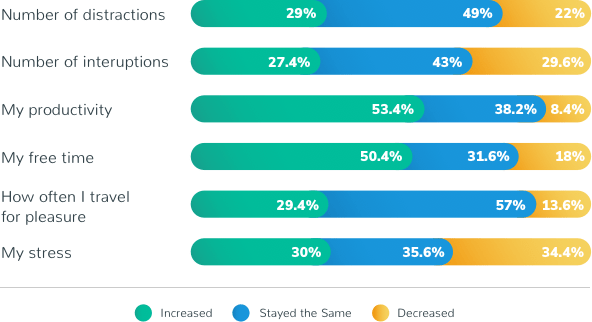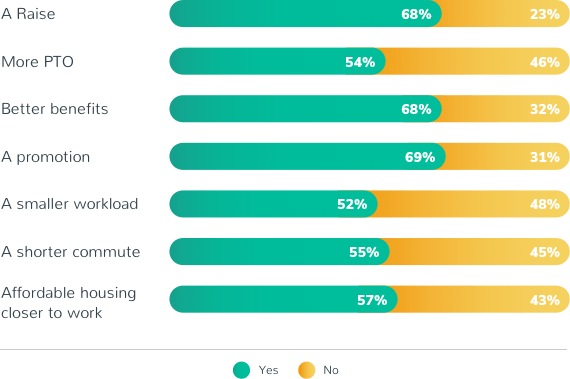A closer look at the benefits and challenges of remote work
Employers are becoming increasingly aware of the value of offering remote work opportunities to their employees. Depending on the type of work their employees perform, allowing more remote days — or time when employees can work away from the job site, for instance, at home or from a cafe — can benefit businesses by increasing productivity and boosting employee retention and morale.
Remote employees are in good company, and as the remote workforce grows, so does the data on its efficacy and the potential benefits for business owners. We wanted to better understand this growing workforce to figure out what business owners and employees can do to take advantage of the benefits of remote work.
QuickBooks Time conducted a survey of 500 employees who telecommute in the United States to collect some thought-provoking data on the state of the remote workforce.1 The dataset reveals when people telecommute. Three-quarters of employees surveyed (75 percent) say they commute at least three days per week. Of that, 28 percent say every day is a remote day. And the time-saving benefits are serious. According to our survey, remote workers save an average of 165 minutes each week by not commuting. That’s nearly three hours a week.
Are remote workers more productive?
More than half of our respondents say they are more productive when they work remotely, which could be due, in part, to the fact that many remote workers (58 percent) are able to work from home.
That said, not everyone feels great when they work off-site. Although over a third of employees surveyed seem to feel remote environments are more relaxing, 30 percent say they experience increased stress while working remotely. Still, 71 percent say the number of distractions either stays the same or decreases.




